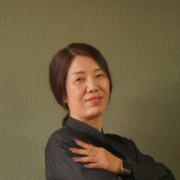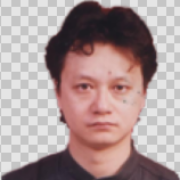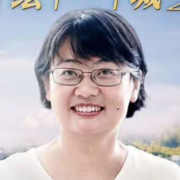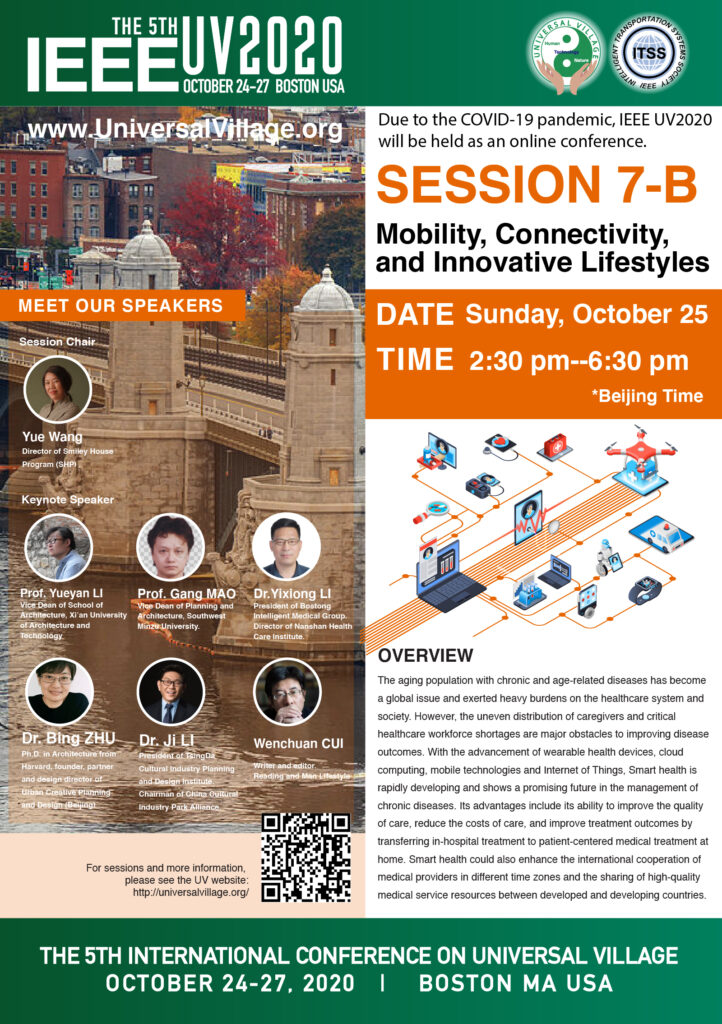It is time to register!
Sunday, October 25 | 2:30 p.m. – 6:30 p.m. (Beijing Time)

Director of Smiley House Program (SHP)

Vice Dean at School of Architecture, Xi’an University of Architecture and Technology

Vice Dean of Planning and Architecture, Southwest Minzu University.

President of Bostong Intelligent Medical Group. Director of Nanshan Health Care Institute.

Ph.D. in Architecture from Harvard, founder, partner and design director of Urban Creative Planning and Design (Beijing)

President of TsingDa Cultural Industry Planning and Design Institute.
Chairman of China Cultural Industry Park Alliance.

Writer and editor.
Reading and Man Lifestyle
Overview
The aging population with chronic and age-related diseases has become a global issue and exerted heavy burdens on the healthcare system and society. However, the uneven distribution of caregivers and critical healthcare workforce shortages are major obstacles to improving disease outcomes. With the advancement of wearable health devices, cloud computing, mobile technologies and Internet of Things, Smart health is rapidly developing and shows a promising future in the management of chronic diseases. Its advantages include its ability to improve the quality of care, reduce the costs of care, and improve treatment outcomes by transferring in-hospital treatment to patient-centered medical treatment at home. Smart health could also enhance the international cooperation of medical providers in different time zones and the sharing of high-quality medical service resources between developed and developing countries.



